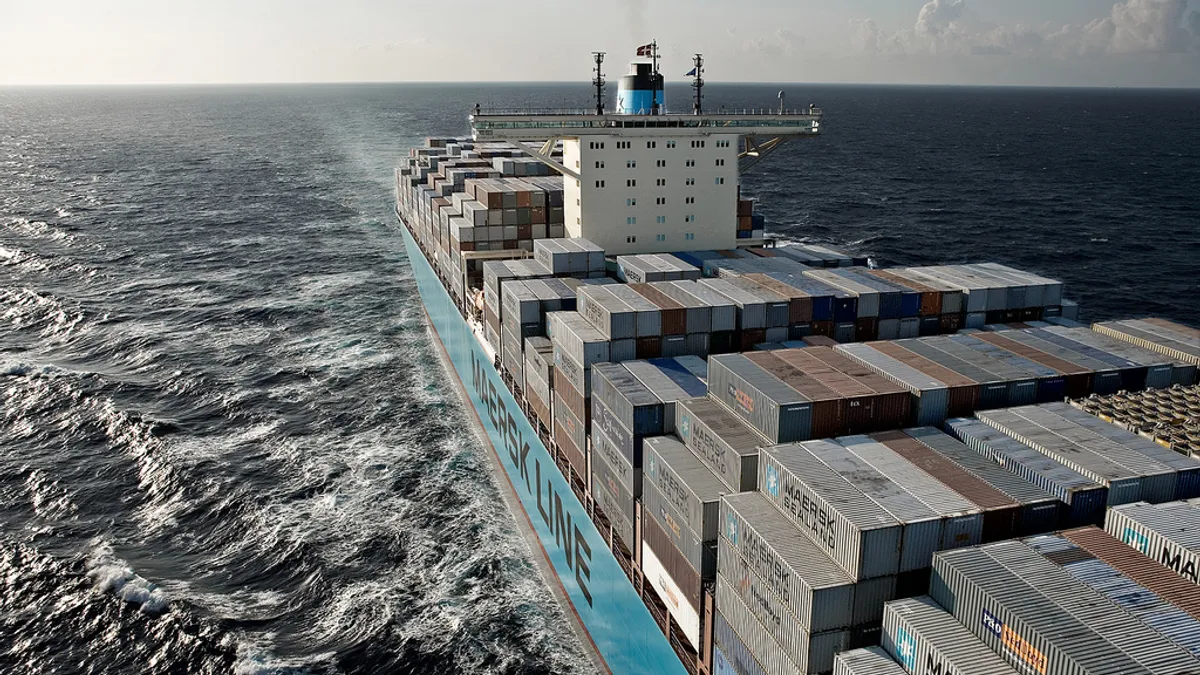Dive Brief:
- Maersk Line is now permitting users of Chinese e-commerce giant Alibaba's OneTouch booking website to advance reserve cargo space, Reuters reported Wednesday.
- The move marks change for both Maersk and Alibaba, which are both expanding services: Maersk in greater convenience for shipping customers and Alibaba in achieving greater control over its supply chain logistics.
- Maersk began offering the service just ahead of Christmas, on December 22. Initially, only Chinese ports such as Shanghai and Ningbo, plus six others, will be offered this option.
Dive Insight:
The battle for global market share between Amazon and Alibaba can seem like a proxy economic war between the U.S. and China at times, with the two e-commerce giants vying to outbid each other in developing markets at every step. For about a year now, the two companies' business models constituted the main difference: while Amazon is aiming to become a global freight forwarder with its own logistics assets, Alibaba had long been content to remain a sales channel.
The Chinese company's new partnership with Maersk, however, threatens to undo this difference, if slowly.
By allowing Alibaba customers to book slots directly, the e-commerce giant will act as a freight forwarder to certain ports — except, as Maersk tells Reuters, that the traditional freight services will continue to be used. In other words, Alibaba and Maersk are not transporting goods, merely coordinating them ... much in the same way Amazon started off its own logistics ventures.
Maersk, meanwhile, benefits both in locking in a portion of Alibaba's global sales and, more importantly, being able to provide customers a more complete service. The Danish group has announced its intention to, like UPS and DHL, offer its clients full supply chain services. This is but another step in that direction.
As the two giants expand beyond their traditional supply chain roles, speculation abounds regarding the effects industry-wide consolidation. During a time of slowed global trade, it appears, larger companies are swallowing up independent downstream agents in order to increase service offerings.
In particular, freight forwarding's role within logistics has been put in question. Pessimists dispute the forwarders' value due to high rates of digitization and shifting consumer expectations, although optimists believe that relationship-based business methods are hardly in danger.
It may be too soon to sound the warning bells, though. The partnership, after all, is a first for both Maersk and Alibaba, with its success rate is yet unknown.













